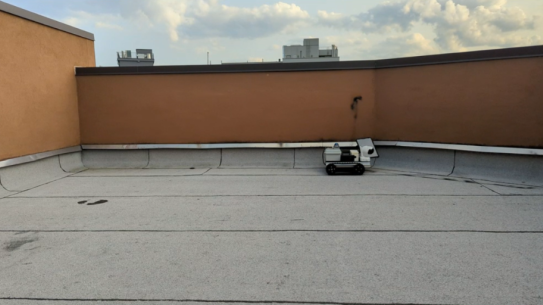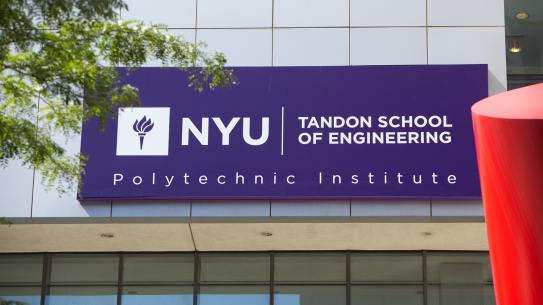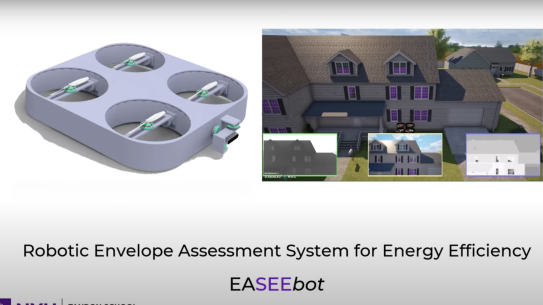Semiha Ergan
,
Ph.D.
-
Associate Professor

I am a faculty at NYU Tandon School of Engineering, Department of Civil and Urban Engineering with a courtesy appointment at the Department of Computer Science and Engineering. I am also an associated faculty member at Center for Urban Science and Progress (CUSP). Prior to joining NYU, I was a research faculty at Carnegie Mellon University. I received my Ph.D. at Carnegie Mellon University.
My research interests include IT to support design, construction and operations of civil infrastructure systems, studying urban challenges for AEC/FM, building informatics for efficient and healthier buildings, quantification of human experience in the built environment, and infrastructure information modeling and visualization.
Experience
Carnegie Mellon University
Visiting Assistant Professor
From: October 2010 to July 2012
Carnegie Mellon University
Assistant Research Professor
From: July 2012 to August 2014
Affiliations
Assistant Professor, Computer Science and Engineering, NYU (courtesy)
Assistant Professor, Center for Science and Progress, NYU (associated)
Adjunct Professor, Carnegie Mellon University, Civil and Urban Engineering
Associate Professor of Civil Engineering, Turkey, Higher Education Council.
Awards
DARPA Young Faculty Award (2015)
Berkman Faculty Award, Carnegie Mellon University (2013)
Outstanding Teaching Assistant Award, Carnegie Mellon University (2007)
Winner of Association for Advancement of Cost Engineering (AACE) Education
Board Scholarship Competition (2006)
Higher Education Council Doctoral Student Scholarship (2003-2008)
Dean’s Successful Student List- High Honor Student (1998-2000)
Patents
System and method for integrated model-based histories, (Full Patent Application)
Semiha Ergan, Burcu Akinci
A formal approach to provide information support for troubleshoot, (Provisional)
Xue Yang and Semiha Ergan
Information for Mentees
About Me: Prefer chatting informally. Joined NYU in 2015, tenured in 2020, was a research faculty at CMU before. A proud PelotonMom.
Research News
AI-powered and Robot-assisted Manufacturing for Modular Construction
Semiha Ergan, assistant professor in the Departments of Civil and Urban Engineering, and Computer Science and Engineering and Chen Feng, assistant professor in the departments of Civil and Urban and Mechanical and Aerospace Engineering will lead this project.
Modular construction, with an established record of accelerating projects and reducing costs, is a revolutionary way to transform the construction industry. However, new construction capabilities are needed to perform modular construction at scale, where, as is the case in factories, the industry suffers from the dependency on skilled labor. Among the challenges this project aims to address:
- Every project is unique and requires efficiency and accuracy in recognition and handling workpieces
- Design and production-line changes are common, and require design standardization and optimization of modules, and
- Production lines are complex in space and time, and necessitate the guidance of workers while processing design and installation information accurately
To focus on these challenges while exploring modular construction within the context of Future Manufacturing (FM), this project exploits opportunities at the intersection of AI/robotics/building information modeling and manufacturing, with the potential to increase the scalability of modular construction.
The research will pioneer initial formulations to enable (a) high throughput in manufacturing through the definition and evaluation of processes that embrace real-time workpiece semantic grounding and in-situ AR-robotic assistance, (b) feasibility studies of optimizing and standardizing the design of modules, and utilization of a cyber-infrastructure for their standardization, (c) prototyping cyber-infrastructures as both novel ways of forming academia and industry partnerships, and data infrastructures to accelerate data-driven adaption in FM for modular construction, and (d) synergistic activities with a two-year institution to train and educate FM workforce for the potential of FM and technologies evaluated.
The team argues that, while the evaluations of technologies will focus on the modular construction, the proposed technologies could make manufacturing industries more competitive, particularly heavy manufacturing industries that share similar challenges such as agricultural, mining, and ship building. The project will therefore enhance U.S. competitiveness in production, bolster economic growth, educate students, and influence workforce behavior towards efficiency and accuracy with the skills required for leadership in FM.





